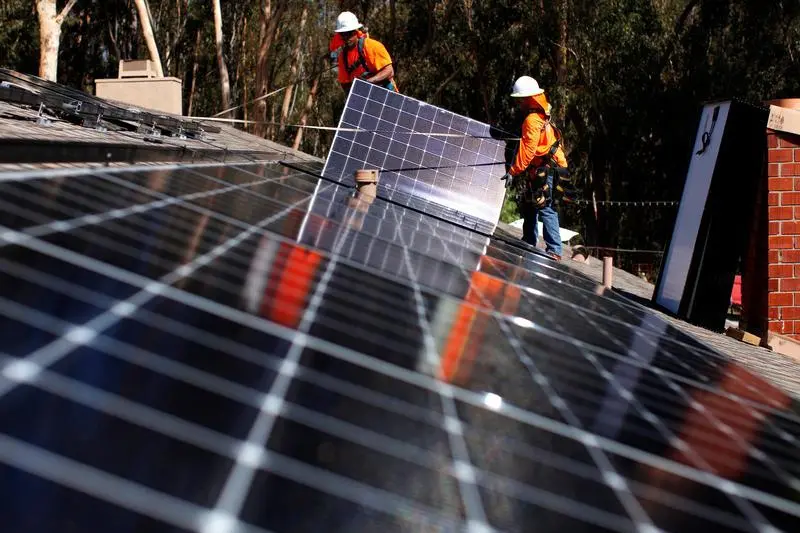PHOTO
Solar panels will be installed at eight public schools across Bahrain, as part of efforts to increase energy efficiency in the country.
The project includes the installation of solar panels on 20 buildings in the eight government schools by the Electricity and Water Authority (EWA) in collaboration with the Education Ministry.
A tender for the project, which is expected to generate a total capacity of three megawatts in energy, will be issued before the end of this year.
Details of the project were revealed yesterday as Electricity and Water Affairs Minister Dr Abdulhussain Mirza chaired a meeting of the National Committee for Energy Efficiency and Renewable Energy.
“The meeting discussed the developments of the tender project for the installation of solar energy systems on eight public schools, consisting of 20 buildings with a total capacity of three megawatts,” said a statement from the committee.
“This tender is expected to be issued before the end of this year.”
The technology takes advantage of abundant solar energy in Bahrain to produce electricity at a lower cost while reducing dependence on fossil fuels and reducing harmful emissions.
The meeting also discussed the Green Building Guide, which is a ministerial decree published in the Official Gazette, and aims to rationalise energy consumption in properties across the country.
“The Green Building Guide aims to rationalise energy consumption in buildings and facilities, saving 20pc to 30pc of electricity and conserving natural resources,” added the statement.
“It will replace the existing air conditioning systems in these facilities and achieve savings in the consumption of electrical energy.”
Members of the committee also discussed updates on a project to create a District Cooling System for buildings and large facilities in Bahrain.
District cooling is the centralised production and distribution of cooling energy. Chilled water is delivered via an underground insulated pipeline to office, industrial and residential buildings to cool the indoor air of the buildings within a district.
District cooling offers a smarter and effective approach as it cools water to 5C to 8C in industrial chillers set up in a centralised plant.
“The meeting also included updates on the District Cooling System for buildings and large facilities, which will serve as a replacement for currently implemented air conditioning systems at such facilities and is aimed at savings in the consumption of electrical energy used to operate air conditioners,” said the statement.
Support
Also discussed during the 13th meeting of the committee were details of a pilot project to support contractors by preparing them with the qualifications necessary to install solar panels at homes.
The project, in collaboration with Tamkeen and the Sustainable Energy Unit, will provide financial support to contractors to enable them to install solar panels for individual homes.
“At the request of the minister, each member provided an update on the timeline and detailed plan for the implementation of the initiatives and programmes entrusted to them in the National Energy Efficiency Plan and the National Renewable Energy Plan,” added the committee.
The two national action plans aim to save energy worth BD230 million and increase Bahrain’s renewable energy target by five per cent in the next six years.
The projects under the plans are solar systems for government buildings, new towns, housing projects and public works, waste to energy (biogas and others), industrial renewable energy initiatives, onshore/offshore wind farm, large-scale solar farm on available land and renewables in infrastructure projects (causeways and airport).
The GDN previously reported that Bahrain has already set a target of using renewable energy to produce 5pc of its power by early 2025 – increasing to 10pc by 2035.
reem@gdn.com.bh
© Copyright 2019 www.gdnonline.com
Copyright 2019 Al Hilal Publishing and Marketing Group Provided by SyndiGate Media Inc. (Syndigate.info).





















